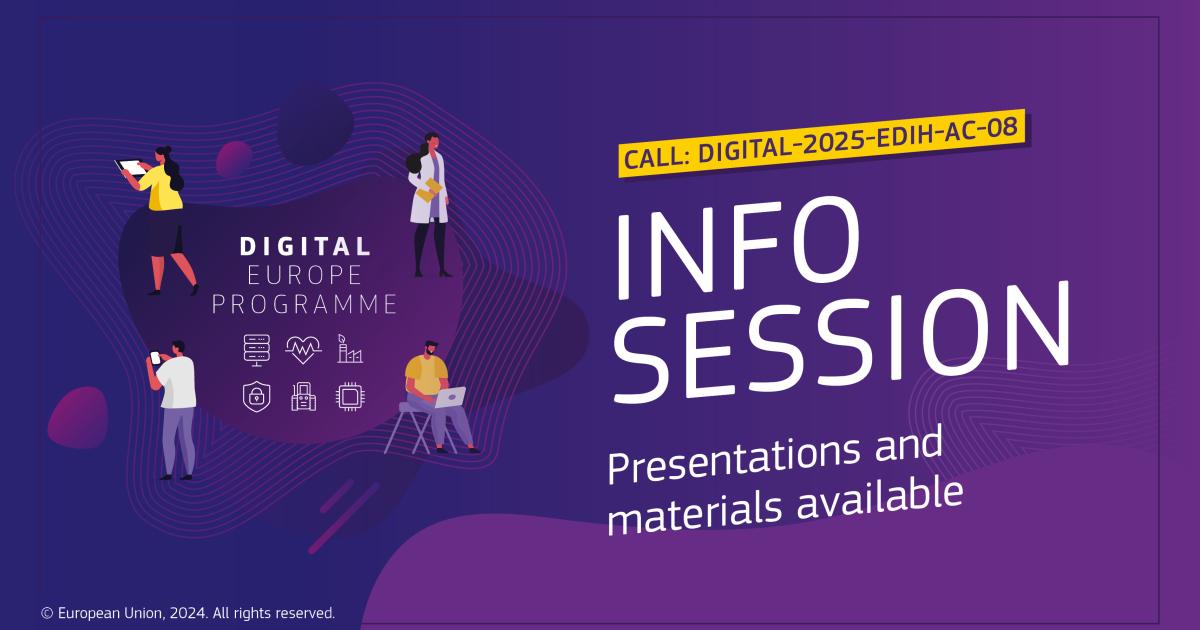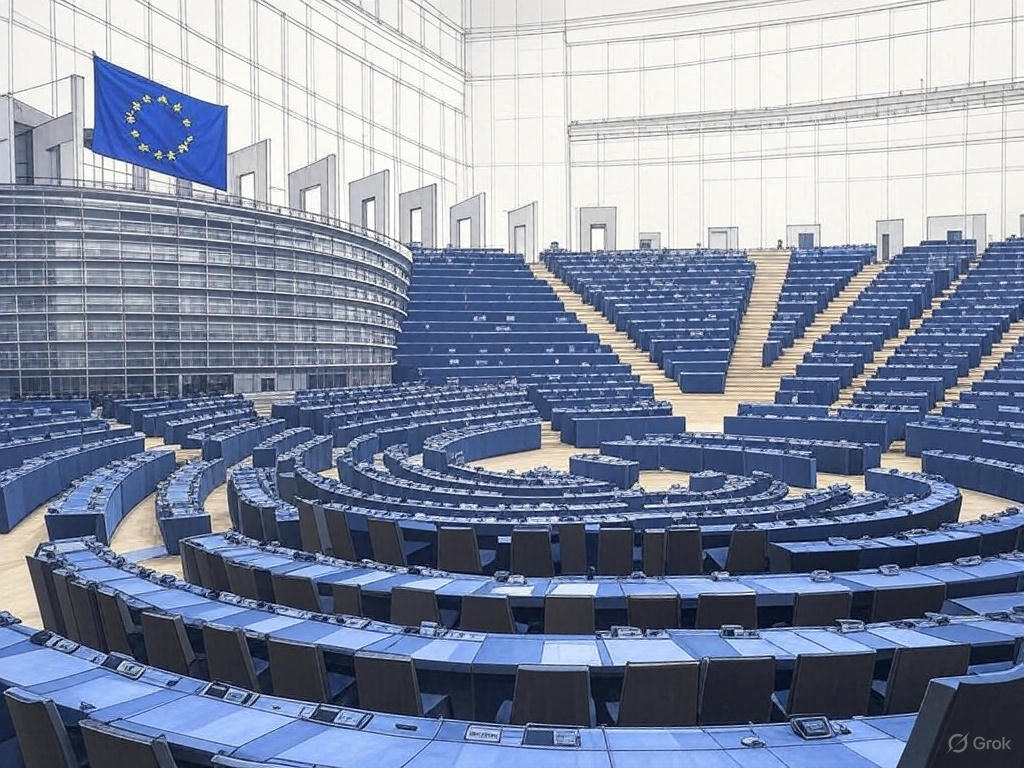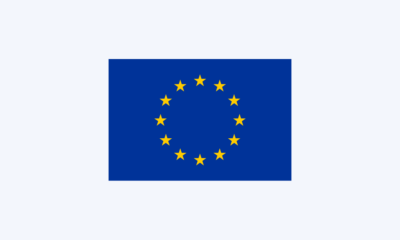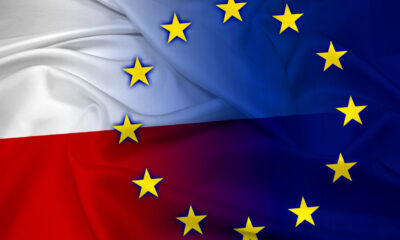Politics
Press release – World Press Freedom Day 3 May: defending media freedom to safeguard democracy

European Parliament President Roberta Metsola, Vice-President Sabine Verheyen and Culture and Education Committee Chair Nela Riehl stress the vital role of independent journalism.
President Roberta Metsola said: “A free press is the best shield for democracy. Journalists must be free to report without fear of censorship, intimidation, or retaliation. The European Parliament will always defend and stand up for media and press freedom – not only on World Press Freedom Day, but every day.”
Sabine Verheyen (EPP, DE), Vice-President of the European Parliament and chair of the Working Group on the implementation of the European Media Freedom Act (EMFA) said:
“On World Press Freedom Day, we reaffirm our commitment to one of the fundamental pillars of democracy: media freedom. Free, independent, and diverse journalism is essential to any democratic society. However, it remains under threat – even within some EU member states – and without it, democracy cannot function. The European Media Freedom Act (EMFA), passed in April 2024, is vital in addressing these challenges. It sends a strong message about the need to protect media diversity and journalistic independence across Europe. Media is more than just an industry – it shapes political discourse, drives cultural development, fosters social inclusion, and safeguards fundamental rights.
“The EMFA represents a historic milestone for the EU: for the first time, a comprehensive European law is in place to uphold press freedom and media pluralism. We have made significant legislative progress in shielding journalists from political interference and economic pressure. But these protections now need to be actively enforced.
“The EMFA is already taking effect. The first provisions have officially entered into force, with the next set to follow this month. By August 2025, the most significant parts of the law will come into effect, marking a major step in strengthening media freedom across the EU. However, the real impact of the EMFA depends on its implementation. That is why we are already monitoring the process closely to ensure that member states do not delay its enforcement. Press freedom cannot wait – we must act upon these commitments.
“On this World Press Freedom Day, we have to remember the importance of standing firm in defending media freedom. Troubling global trends remind us that indifference is not an option. Even in Europe, we must remain vigilant in upholding our democratic values. Press freedom is the backbone of democracy – defending it means protecting our freedoms and the values we hold dear.”
Nela Riehl (Greens, DE), Chair of the Committee on Culture and Education, said: “An independent press sector is an essential pillar of our democracy. We need a free press to hold our decision makers accountable, advance social change, and keep citizens informed. I am concerned about the drastic increase in young people’s exposure to news from unverified sources on social media. Quality journalism is competing with algorithms on social media platforms for our attention. To minimise the spread of harmful disinformation, the EU is now starting to regulate digital platforms, but we also need to improve media literacy, make sure people have access to accurate information, and provide education on media consumption.
“This should be a high priority for civic education, with clear targets as we work towards improved democratic resilience across Europe. As a committee, we are pushing these challenges up the European education agenda, and we welcome the first steps in this direction under the Commission’s “Union of Skills” initiative.
“My recent visit to Ukraine reminded me of the power of citizens to counter threats to democracy. When the manipulation of information is weaponised, strengthening and protecting people – namely independent journalists, reporters, media professionals, and volunteers – is a matter of security as well. Accordingly, this World Press Freedom Day, we also emphasise the need to make work environments safe for the independent press, with liveable working conditions, a supportive European infrastructure, and protection from persecution.”
The chairs of the Civil Liberties Committee, the Human Rights Subcommittee and the Special Committee on the European Democracy Shield are also issuing a statement to mark the World Press Freedom Day. You can read it here (available soon).
How Parliament strengthens media freedom
In early 2024, Parliament and Council adopted new rules to protect freedom of media and the independence of journalists in the EU. The provisions of the Media Freedom Act (EMFA) will become fully applicable in EU member states as of 8 August 2025.
These provisions should ensure transparency of media outlet ownership and of allocation of state advertising, strengthen public media independence, and secure robust protection for journalists and their sources. To ensure visibility and pluralism, digital platforms will be prevented from arbitrarily deleting or restricting independent media content.
A directive to protect journalists and civil society activists against strategic lawsuits seeking to silence critical voices must be transposed into national law in all EU member states by 7 May 2026.
Every year, the European Parliament rewards outstanding journalism that promotes or defends the core principles and values of the European Union, such as human dignity, freedom, democracy, equality, rule of law, and human rights. The fifth edition of the Daphne Caruana Galizia Prize for Journalism will be launched later this month.
Politics
Info session on DIGITAL-2025-EDIH-AC-08 call – presentations and materials available

On 30 April 2025 , the Health and Digital Executive Agency (HaDEA) hosted a virtual info session on the newly launched call *DIGITAL-2025-EDIH-AC-08: European Digital Innovation Hubs – Associated Countries (EDIHs with reinforced AI focus) , * under the Digital Europe Programme .
The event provided stakeholders from academia, industry, public institutions, and research organisations an opportunity to learn more about the funding opportunities, the application process, and key requirements for submitting competitive proposals. Participants also engaged in live Q&A sessions aimed at clarifying eligibility criteria and submission procedures.
Two Strategic Objectives
The call is divided into two main topics, each targeting specific strategic goals:
1. DIGITAL-2025-EDIH-AC-08-COMPLETION-STEP: Completion of the initial EDIH Network
This part of the call aims to expand the existing network of European Digital Innovation Hubs (EDIHs) by including entities from Bosnia and Herzegovina and Moldova . The objective is to enhance the overall performance and capacity of the EDIH network to address digitalisation needs at local, regional, national, and EU levels.
- Total Budget : €2 million
- Focus : Completing the pan-European coverage of the EDIH network
- Eligible countries : Bosnia and Herzegovina, Moldova
2. DIGITAL-2025-EDIH-AC-08-CONSOLIDATION-STEP: Consolidation of the EDIH Network with AI Focus
This topic seeks to strengthen the EDIH network by selecting new hubs from Seals of Excellence holders in four associated countries: Albania, North Macedonia, Türkiye, and Ukraine . These new EDIHs will have a particular emphasis on artificial intelligence (AI) , supporting the EU’s broader strategy to become a global leader in trustworthy AI.
- Total Budget : €9 million
- Focus : Reinforcing AI capabilities across the extended EDIH network
- Eligible countries : Albania, North Macedonia, Türkiye, Ukraine
What Was Covered in the Info Session?
Presentations delivered during the event included:
- Policy Context : Overview of the Digital Europe Programme and the role of EDIHs in bridging the digital divide across Europe.
- Legal Validation and Financial Capacity Assessment : Key steps applicants must follow to ensure compliance with funding rules.
- Strategic Technologies for Europe Platform (STEP) : Insights into how EDIHs can align their activities with priority technologies identified by STEP.
- Submitting a Successful Proposal via the Funding & Tenders Portal : Practical guidance on navigating the online submission system.
- Support with Proposal Preparation : Tips and resources available to help applicants develop high-quality proposals.
All presentation materials are now available online , offering a valuable resource for prospective applicants preparing their submissions.
Building a Pan-European Digital Ecosystem
The expansion and consolidation of the EDIH network represent a crucial step toward achieving a truly inclusive and geographically balanced European digital innovation ecosystem . By reinforcing AI capacities and extending coverage to associated countries, the EU aims to support SMEs, public authorities, and citizens in adopting advanced digital technologies.
“This call is not just about funding—it’s about empowering regions, building expertise, and ensuring that all parts of Europe can benefit from the digital transformation,” said a HaDEA representative during the session.
Next Steps
Interested applicants are encouraged to review the call documents and presentations on the Funding & Tenders Portal and begin assembling their consortia. The deadline for submission is expected to be announced shortly.
For more information and updates on this call and other Digital Europe Programme initiatives, visit the HaDEA website or contact HaDEA directly via the Funding & Tenders Portal.
Source link
Politics
Europe Day 2025: come and visit us!

Every year, on 9 May, people across Europe celebrate the anniversary of the Schuman Declaration, which was a milestone to bring peace and solidarity in Europe. This year is particularly special as it marks the 75th anniversary of this historic moment.
Let’s celebrate together
To celebrate this occasion, the EDPB takes part in the EU Open Day, with an interactive stand hosted by volunteers from the EDPB Secretariat and national Data Protection Authorities (DPAs). Come and visit us to learn more about data protection and the EDPB’s activities.
You will find the EDPB and EDPS stands at the European Commission’s headquarters – the Berlaymont building – Village 1 “A Democratic Union”, on Saturday 10 May from 10:00 to 18:00.
Do you want to learn more about privacy and data protection — and test your knowledge?Come visit us for fun activities and quizzes designed just for you!
Further information about Europe Day 2025
Source link
Politics
ESMA Consults on Rules for ESG Rating Providers as Part of Broader Push for Transparency in Sustainable Finance

In a major step toward strengthening oversight and transparency in the fast-growing environmental, social, and governance (ESG) ratings market, the European Securities and Markets Authority (ESMA) has today published a Consultation Paper outlining draft Regulatory Technical Standards (RTS) under the newly established ESG Rating Regulation.
The initiative marks a critical component of the European Union’s broader sustainable finance strategy, aimed at ensuring that ESG-related financial products and services are reliable, comparable, and free from greenwashing. As demand for ESG data surges among institutional investors and corporate issuers, concerns have mounted over inconsistent methodologies, lack of transparency, and potential conflicts of interest within ESG rating agencies.
What’s in the Draft RTS?
The consultation paper sets out detailed requirements across three key areas affecting ESG rating providers:
- Authorisation and Recognition Applications :
The draft standards specify the information ESG rating providers must submit when applying for authorisation or recognition by national competent authorities. This includes details about their organisational structure, governance arrangements, and internal processes for producing ESG ratings. - Conflict-of-Interest Safeguards :
Given that many ESG rating providers also offer consulting or advisory services, ESMA proposes robust safeguards to mitigate potential conflicts of interest. These include structural separation requirements, internal information barriers, and restrictions on certain cross-selling activities. - Public and Stakeholder Disclosure Requirements :
Under the proposed rules, ESG rating providers would be required to disclose extensive information to the public, including methodologies used, key assumptions, and historical performance of ratings. Additionally, they must provide specific disclosures to rated entities and users of ESG ratings, enabling greater scrutiny and comparability.
Why It Matters
“The ESG ratings industry has grown rapidly with little regulatory oversight,” said an ESMA spokesperson. “This consultation is a crucial step in ensuring that these providers operate transparently, consistently, and independently—giving investors and regulators the confidence they need to rely on ESG data.”
With no unified standards currently governing how ESG ratings are calculated or disclosed, different providers often assign widely divergent scores to the same company. Critics argue this undermines investor trust and creates opportunities for manipulation. The new rules aim to address these concerns head-on.
Industry Response and Next Steps
ESMA is calling on all stakeholders—including prospective ESG rating providers, asset managers, institutional investors, and corporate issuers—to contribute feedback by 20 June 2025 . The authority plans to finalise the RTS and submit them to the European Commission for adoption in October 2025 .
Industry observers expect the consultation to spark significant debate, particularly around the operational feasibility of conflict-of-interest mitigation measures and the extent of mandatory disclosures.
“This is a pivotal moment for ESG ratings,” said Sofia Alvarez, a sustainable finance analyst at a leading EU think tank. “If implemented effectively, these rules could set a global benchmark for accountability in sustainability data.”
Background
The ESG Rating Regulation was adopted by the EU earlier this year as part of its commitment to creating a more resilient and transparent sustainable finance ecosystem. The regulation will apply directly across all EU member states and is expected to come into force in early 2026.
Further information, including the full Consultation Paper and submission guidelines for feedback, can be found on ESMA’s website. Comments and media inquiries should be directed to Dan Nacu-Manole, ESMA Communications Officer, at [email protected] .
For more updates on sustainable finance and regulatory developments in the EU, follow us on Twitter or visit www.esma.europa.eu .
-

 EU & the World6 days ago
EU & the World6 days agoMichael Bolton’s Kids: Everything To Know About His 3 Adult Daughters
-

 EU & the World6 days ago
EU & the World6 days agoRobert De Niro’s Kids: Meet the Award-Winning Actor’s 7 Children
-

 EU & the World5 days ago
EU & the World5 days agoWho Is Ashley Buchanan? About the Kohl’s CEO Who Was Fired
-

 Politics6 days ago
Politics6 days agoPress release – “Flow” wins 2025 LUX Audience Award
-

 Sports6 days ago
Sports6 days agoReal Madrid, sting on Antonio Rüdiger
-

 Sports6 days ago
Sports6 days agoAlexander Bublik’s curious rant on today’s tennis
-
Travel7 days ago
Travelling to Thailand? Everything you need to know about the new digital entry form
-

 Politics6 days ago
Politics6 days agoNew MSCA Seal of Excellence call open in Poland









